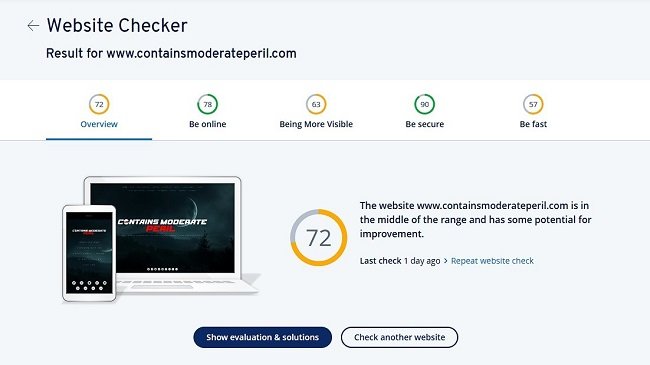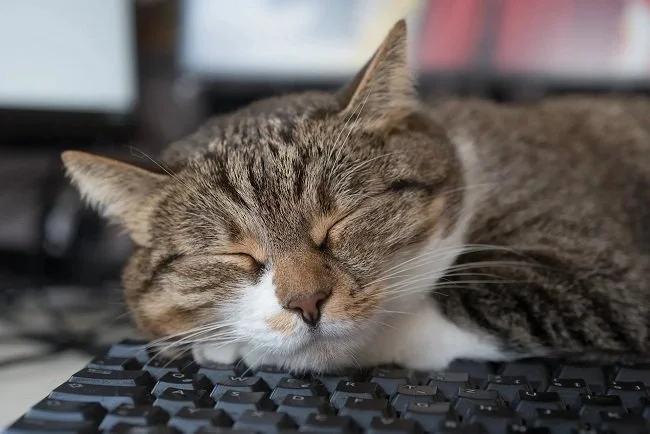Getting Your Writing Environment Right
For my first post of Blaugust 2022 I am returning to the subject of your writing environment, as I believe it has a significant bearing upon one’s writing (or whatever other content that you create). This is the third time I’ve tackled the subject. I initially wrote about my new desk in 2016, when I first tried to set up the spare bedroom as my office. This plan was partially thwarted by the arrival of my twin granddaughters, who needed to use the bedroom when they stayed overnight, resulting in a logistical compromise. I published a second post four years later and by that time the children’s cots had been replaced by a single spare bed allowing me to use the room as a proper office. As of today, my desk is now pretty much how I want it and provides a suitable environment for me to write and conduct research. It also accommodates a lot of my leisure activities as I am a PC gamer.
However, not everyone has the luxury of a desk or spare room that doubles for a home office. Often we have to use the environment that is immediately available to us, rather than the one we would like to have. So for practical reasons, needs must when the devil drives as the expression goes. Therefore, if using a laptop on the kitchen table is the only practical work space you have access to, then it will have to suffice. Fortunately, there are still a lot of things that you can do to improve your immediate writing environment, allowing you to focus on the task in hand. You don’t even have to spend any money if you don’t want to. Here are a few simple and straightforward ideas and working practices that, if sensibly applied, can improve your working environment.
Eliminate noise and other distractions. Find a place to write where you can control the environment, especially with regard to noise and other day to day distractions. Some people like to write with the TV on in the background or while listening to music. That’s fine but it is preferable to be able to manage such things, rather than have them inflicted upon you. The ability to be able to pull the curtain or blinds can be invaluable. Especially if like me, you find your attention wandering to events outside. Close the door if necessary so that others know that you’re busy. You may also wish to keep your pets out although this is often a losing battle.
Lighting. I like writing in a well illuminated room and favour LED bulbs of about 1600 lumens (the equivalent of 100 Watts). My office window looks North so doesn’t directly face the sun. This does have some advantages regarding light reflecting onto my monitors. It helps if you take some time to consider where you place your laptop or computer screens in your writing environment, to ensure you have sufficient light and minimal shadows.
Ergonomics. If you’re writing, streaming or working on your laptop or PC, you're going to spend a fair amount of time sitting down. Ensuring that the desk, table or worksurface you’re sitting at is an appropriate height is important to avoid back and neck strain. The chair that you're sitting on needs to be suitable for the job. Office chairs are best. Avoid stools and anything that doesn’t offer upper body support. The addition of a humble cushion can make a world of difference, as can wrist rests. Remember to take a break every hour and ensure that you have a drink to hand. If you have the budget for a computer chair then invest in something suitable. If you’re budget conscious, charity shops seem to have a lot of home office furniture these days.
Temperature and ventilation. Everyone has a preferred temperature. One where you feel relaxed and comfortable. A writing environment that is excessively hot or cold is just another excuse not to write. However a fan, open window or a closed door can make a lot of difference. It is also worth remembering that a PC and other electrical equipment produce a lot of heat which can raise the temperature in a room. Do what you can to manage these.
The right tool for the job. This is a mantra that I feel is pertinent to most situations. Often the key to a successful outcome is using the right tool for the job. Cheap screws will strip, cheap clothes fall apart and cheap PC peripherals and associated equipment will fail or produce inferior results. Do what you can within your budget to get the right tools for what you’re doing. Sometimes the top of the range is not required and there are good mid-range alternatives. Also, don’t get by with jury-rigged solutions. If you can’t reach your laptop properly, don’t precariously balance it on a stack of books. Invest in a stand that can be adjusted. Writing regularly becomes a lot easier if the means to do so are efficient and accessible. A problematic mouse or a monitor that has a tricky HDMI cable can all potentially turn an agreeable experience into a chore.
With regard to my own writing environment, I have discovered that I feel the same way about my desk as I do about internet bandwidth. You always want more capacity. I recently replaced my ageing speaker set up with a convenient soundbar in an attempt to free up more deskspace and reduce excessive cabling. Yet even after removing a cup full of pens, an in tray and various other bric-a-brac I still have insufficient room to work. So I now find myself looking at office furniture online and daydreaming about expanding my office empire. However, despite some minor niggles, I do enjoy my home office and find that it meets my needs with regard to writing. Ultimately, this is what you need from your writing environment. A space where you feel comfortable and can concentrate on getting your thoughts written down. Get that right and you’re more likely to write regularly and confidently.




























